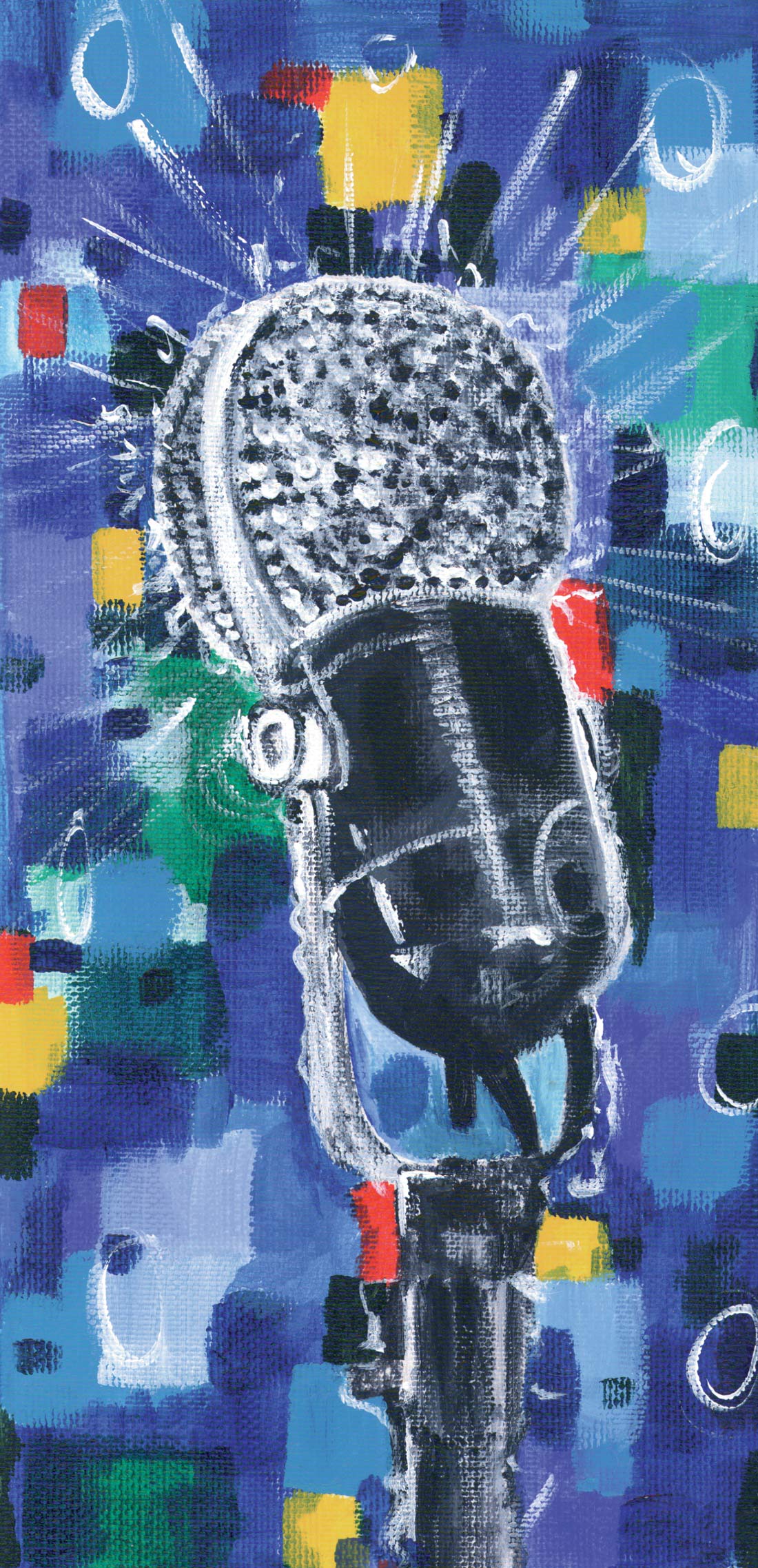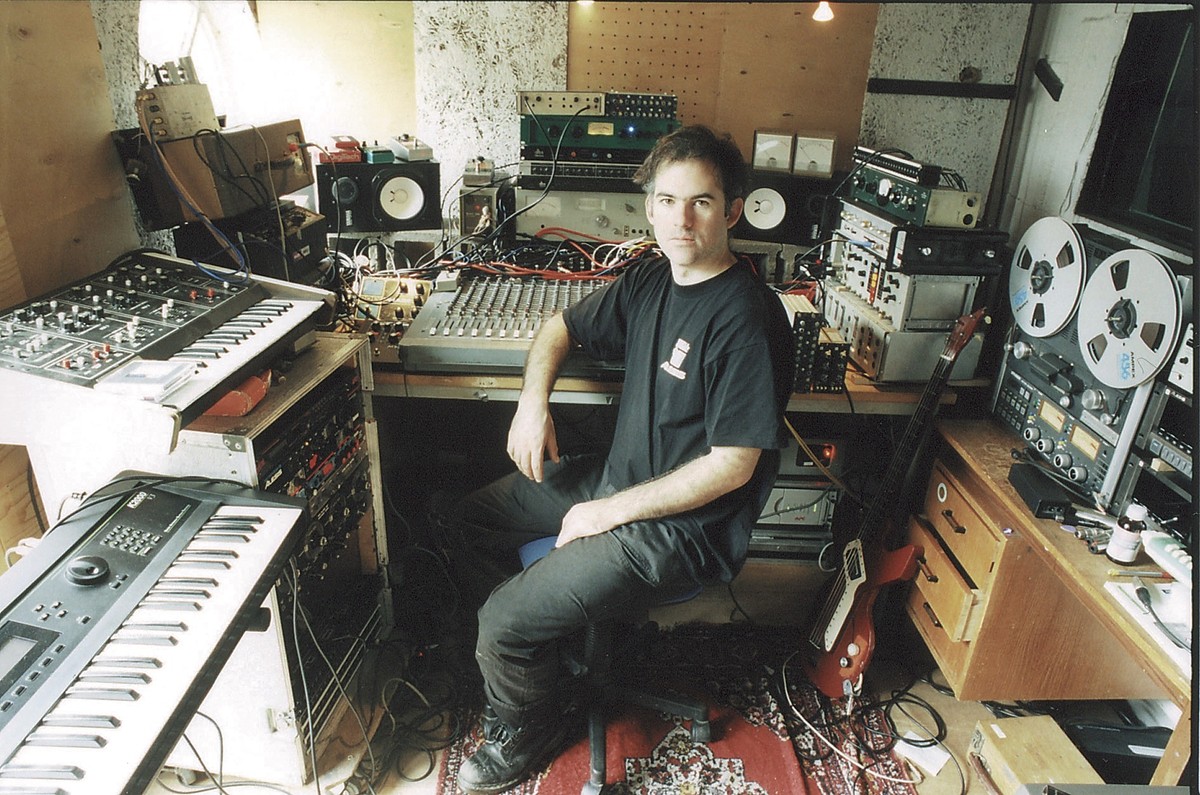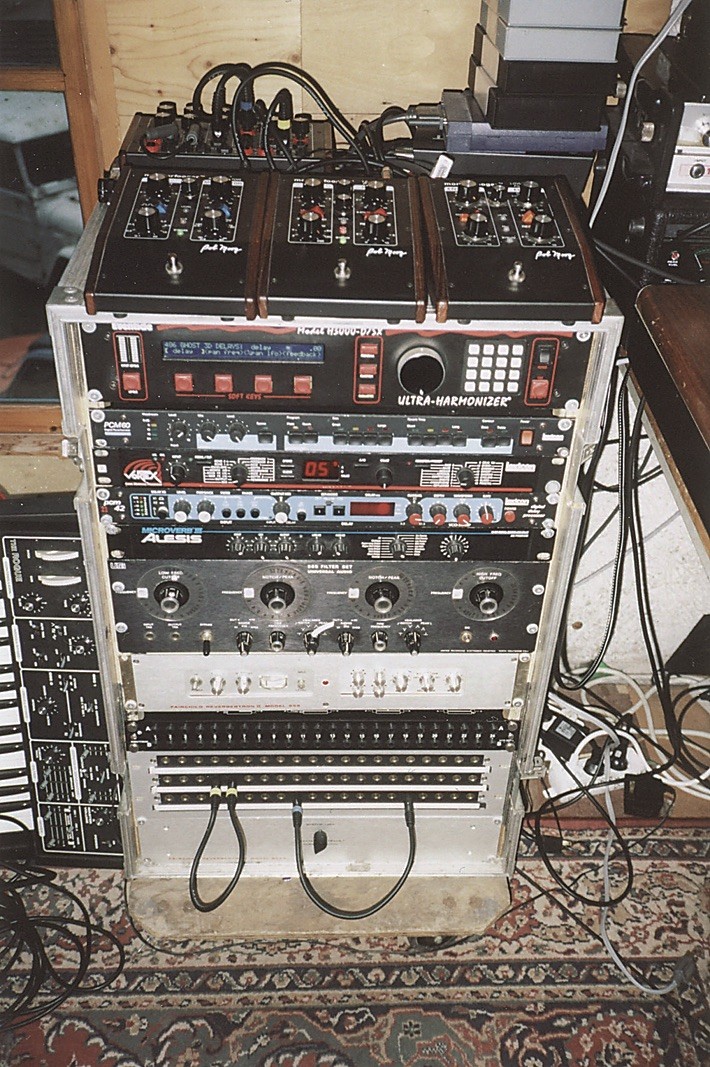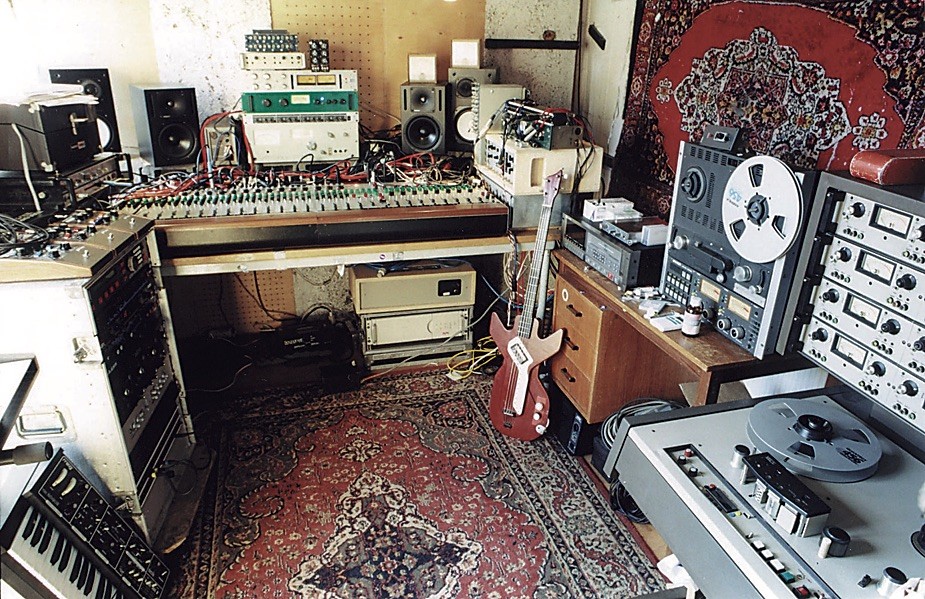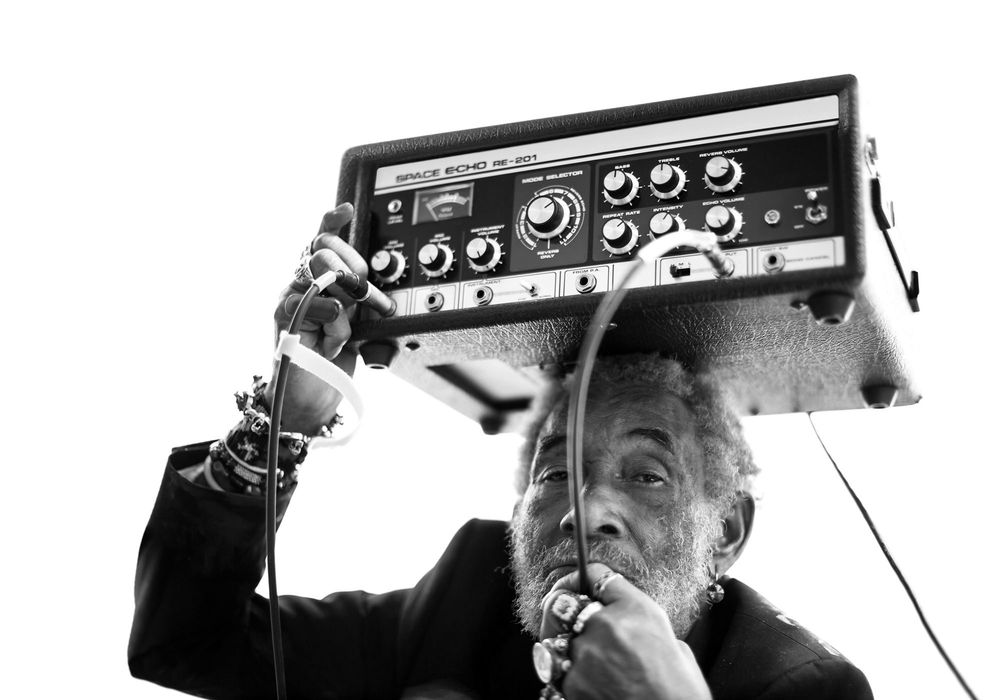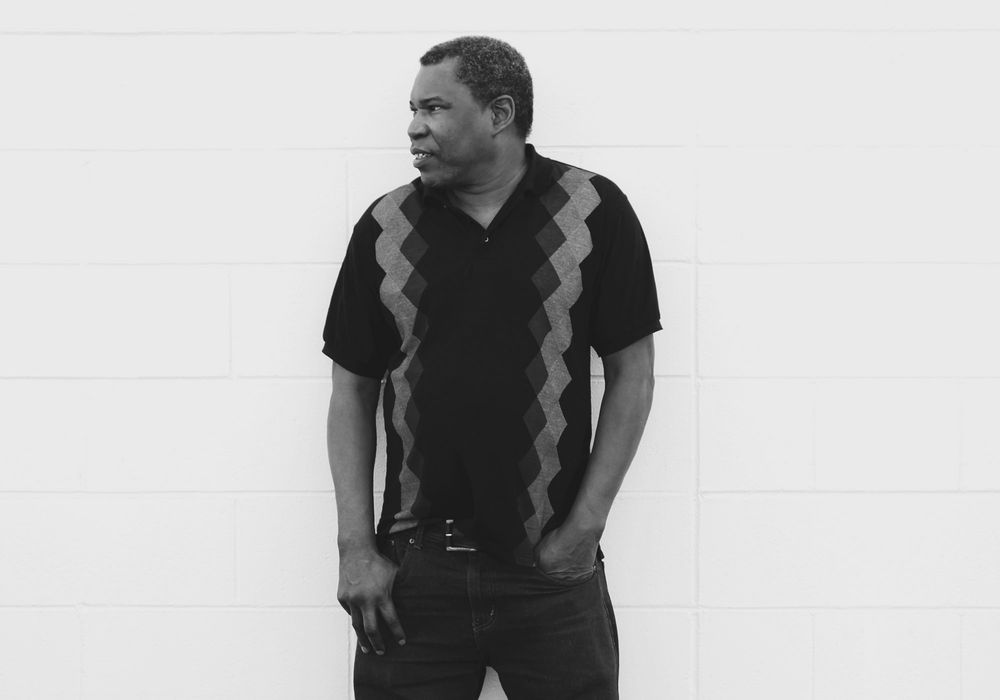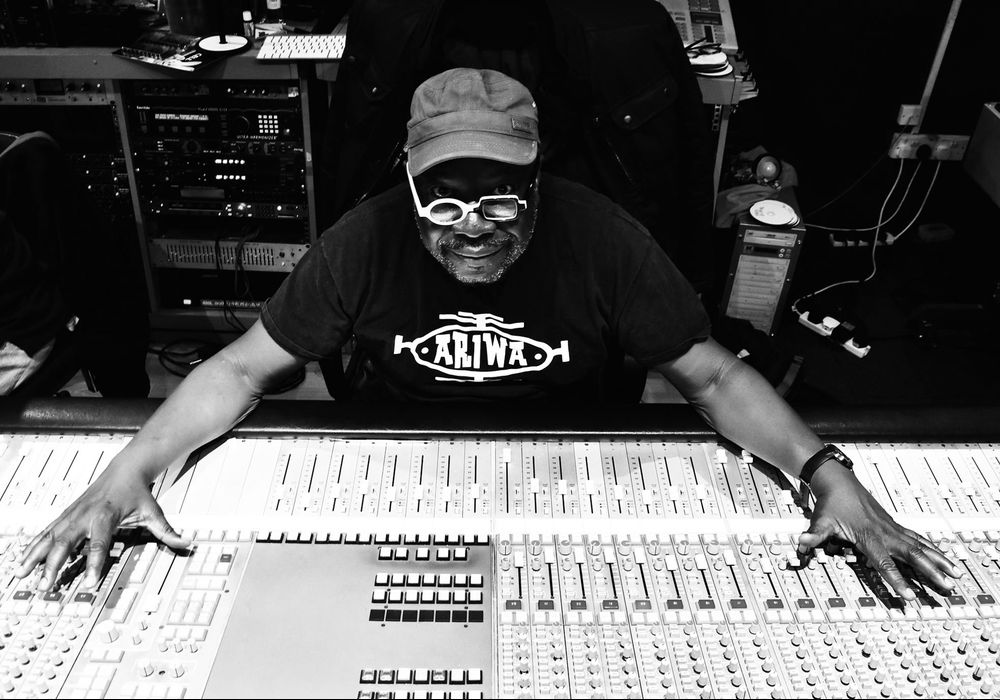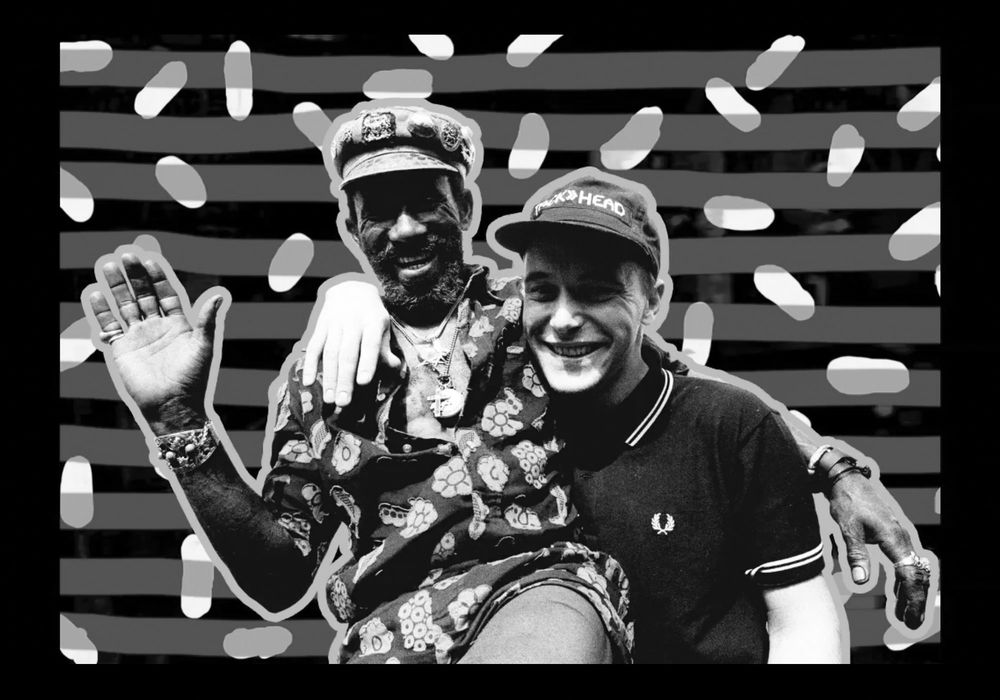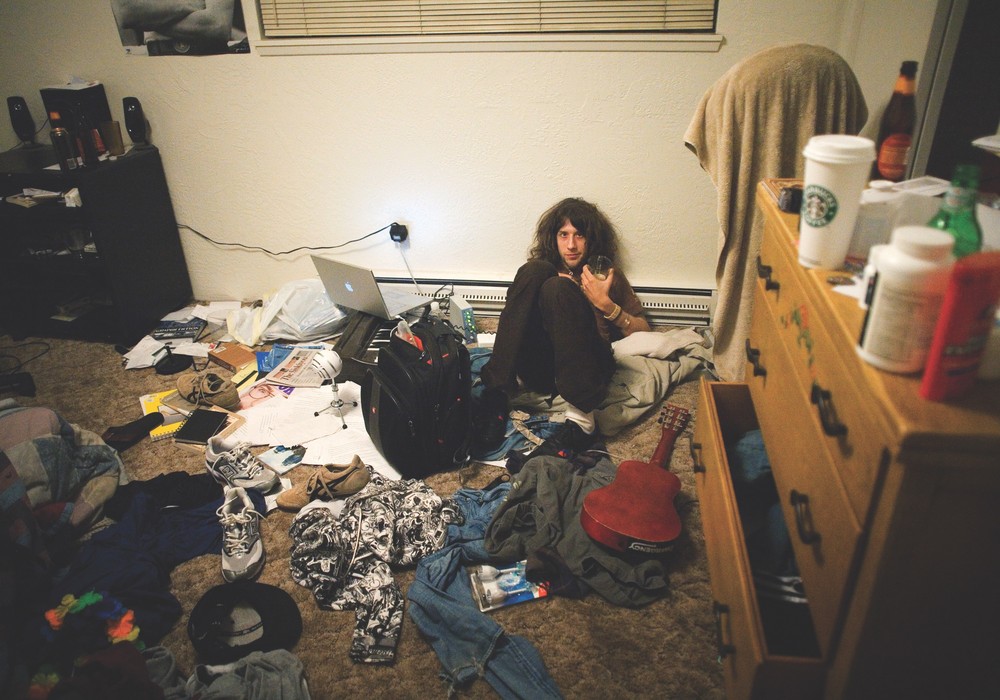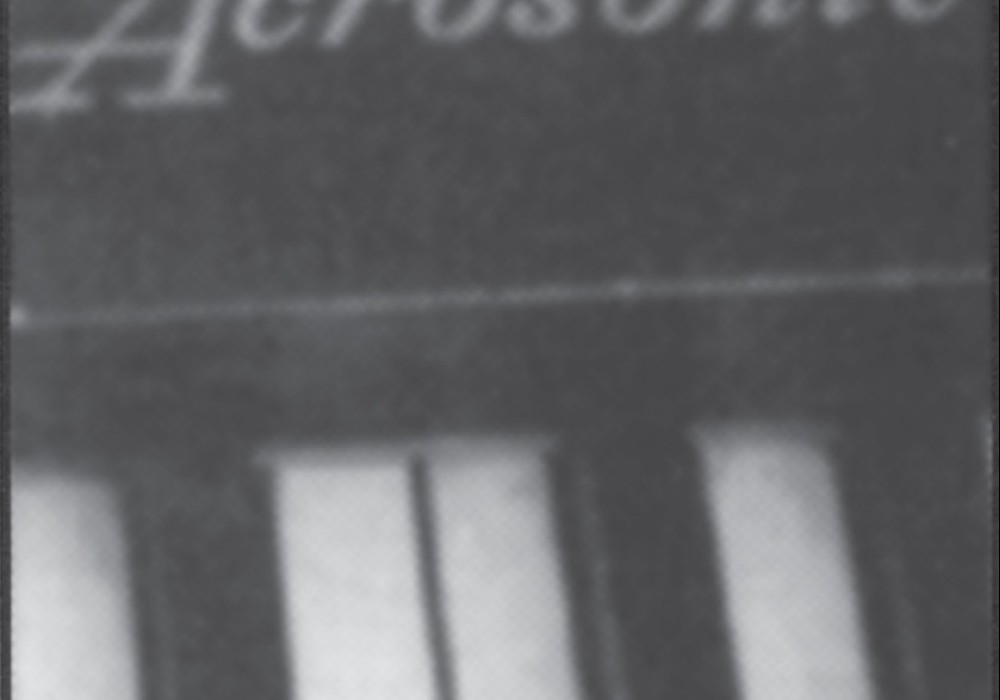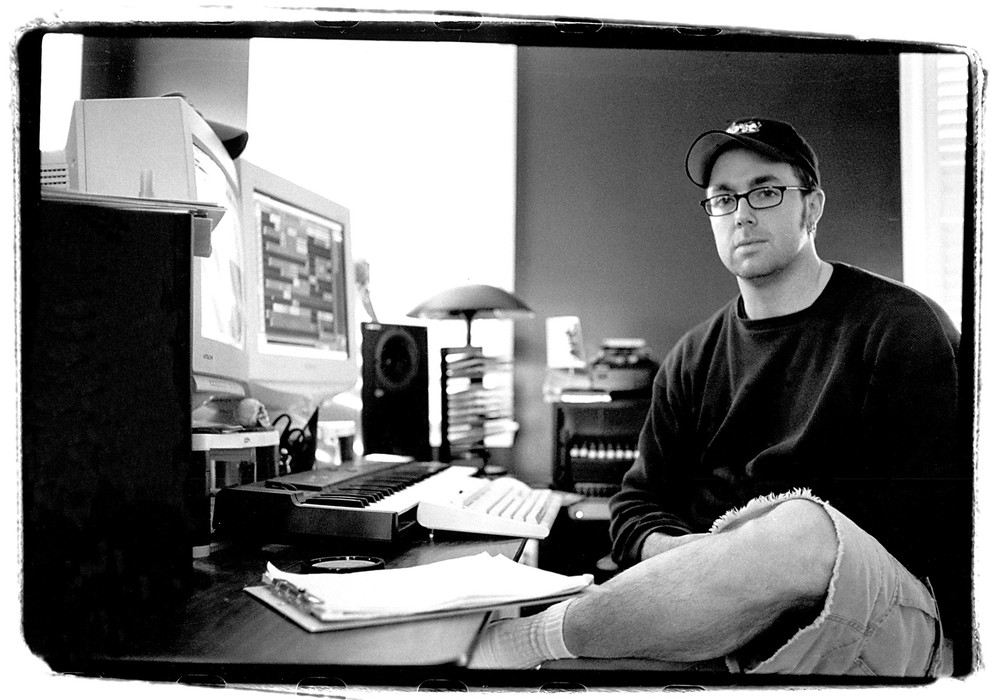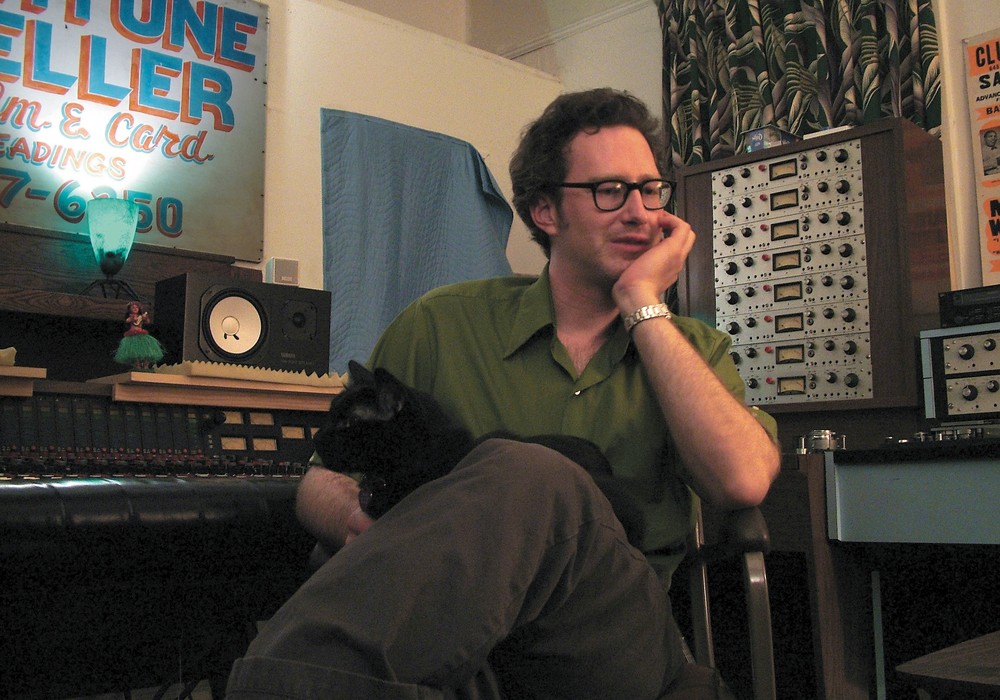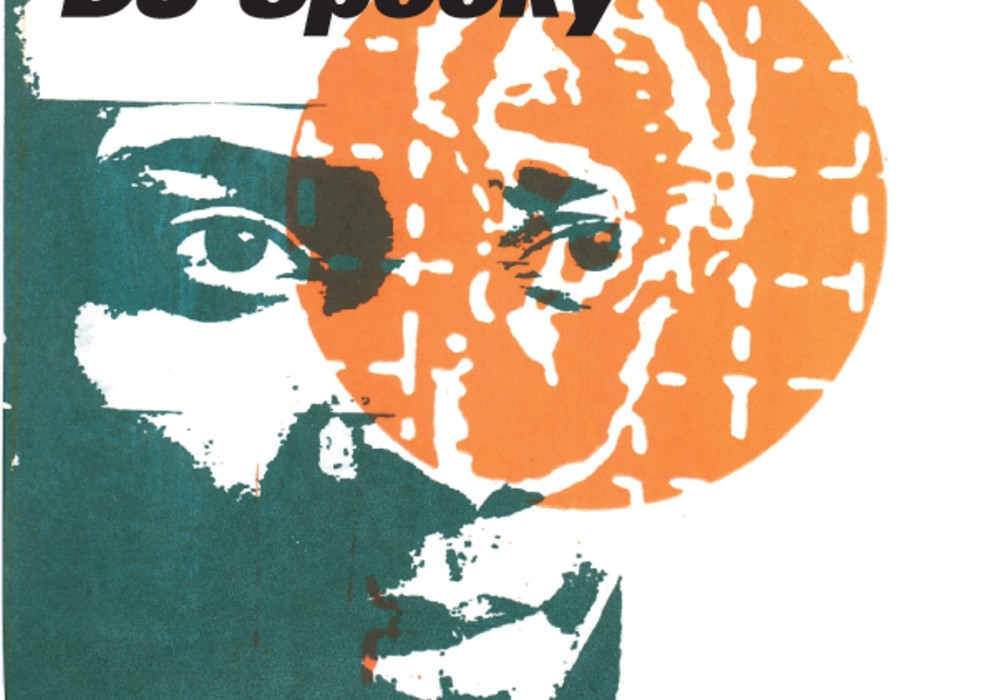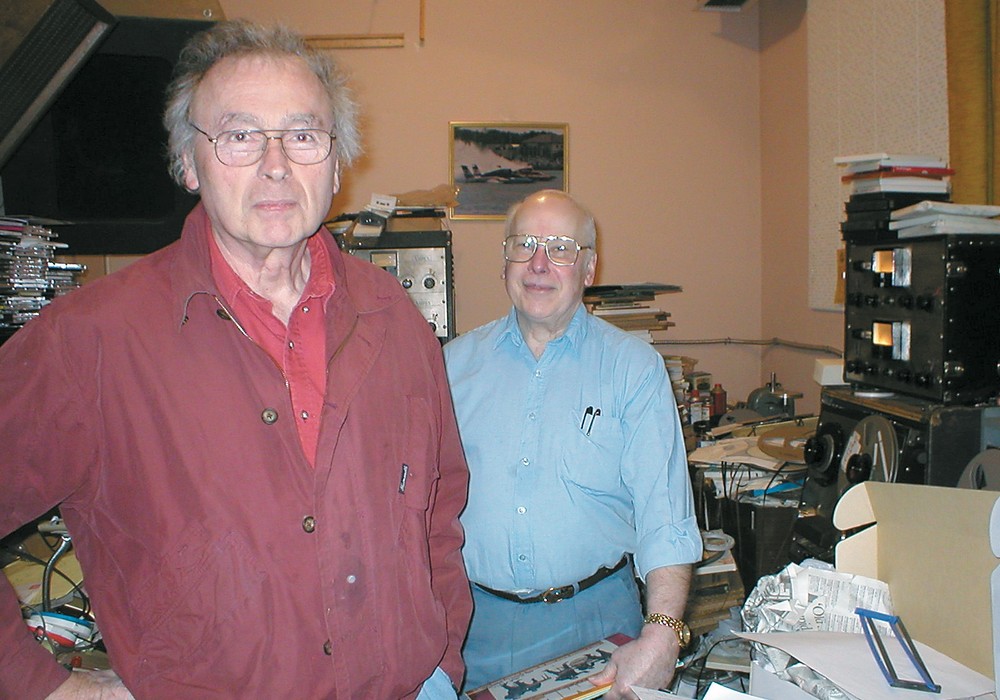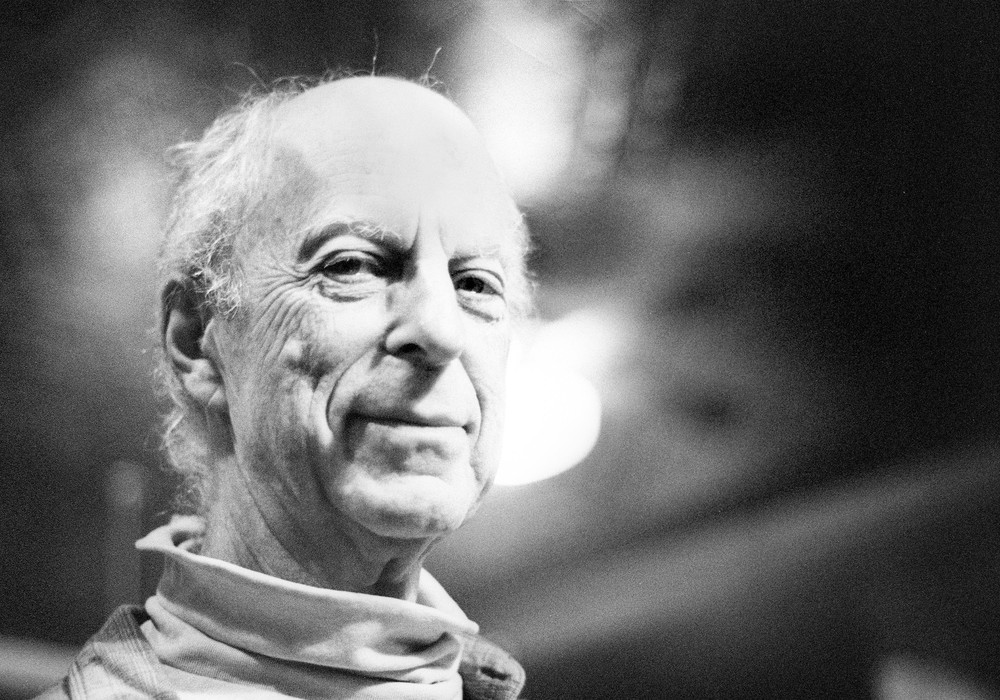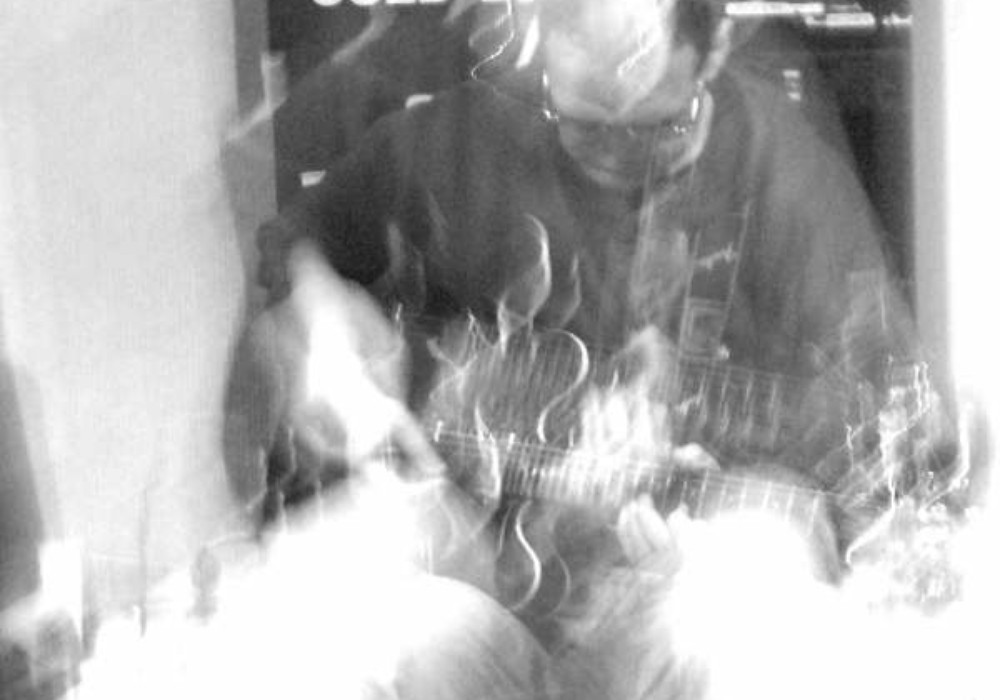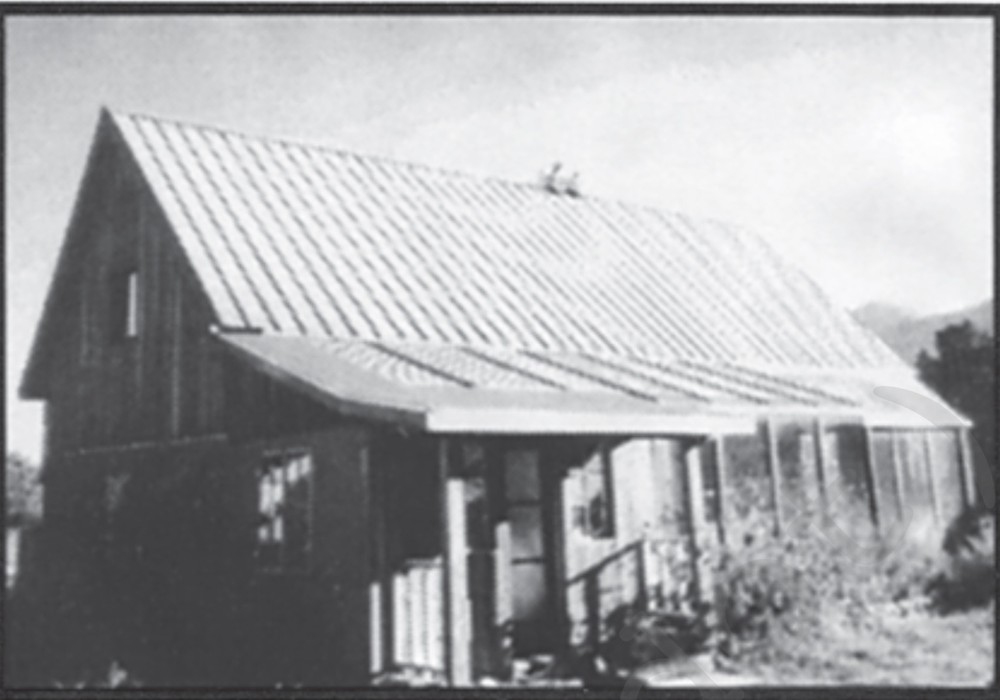You know those cathartic protests against globalization? How come they're so well co-ordinated in cities as far flung as Seattle and Genoa? Could it be that the disappearance of boundaries in global communications actually fosters the forces of radicalism as well as the spread of capitalism? The truth is that globalization isn't all bad. If you wanted to, you could move to Tokyo and make recordings of Brazilian music, while touring the Pacific Rim on the side in a Korean disco band. Sound far-fetched? Not to the ringmaster of Twilight Circus Dub Sound System. Twilight Circus is in actuality one Ryan Moore, a 30-something ex-patriot Canadian (by way of Vancouver), a former bass player for the Tear Garden, who's toured internationally as a drummer for the Dutch/British experimental rock band, Legendary Pink Dots. In 1992, he relocated to Nijmegen, a town in the Netherlands just east of Amsterdam.
Since then, he's released eight Twilight Circus CDs on his own M Records label, each deeply steeped in the Jamaican sound of '70s dub reggae.
The Twilight Circus sound is crisp and modern, but it's not built on programmed beats like most contemporary reggae and dancehall. Instead, it's based in an analog studio process that predates MIDI, computers or digital anything. Moore is a textbook case of a guys who does, and uses, whatever works. Given his passion for dub — which, like the blues, is an infinitely malleable music of deceptive simplicity — it makes sense that his technical needs can be downright primitive. It's a philosophy he applies in multiple dimensions: the first time I saw him DJ, his traveling rig consisted of a small mixer, two Discman-style CD players and a CD wallet. The whole set-up fit in a briefcase, with room left over for a sandwich and a change of socks.
We spoke with Moore from his studio near Nijmegen.
What's your working definition of dub?
I would define dub as a mixing style in which the engineer literally "plays" the desk, faders and the studio itself as an instrument — using the recorded material as a basis to create something new. The mixer becomes all-important in determining the final result. Essentially with dub we have the origin of the remix. It's quite amazing to think that dub, which started initially to provide Jamaica's sound system culture with instrumental versions for DJs to rap over and as a cost-effective way to fill up the B- side of a 45, evolved to become a hugely influential concept which ushered in radically new mixing approaches, changing modern music along the way.
Is anyone actually credited with the origin of dub?
Not specifically, but the importance of King Tubby in the dub equation can't be overemphasized. At his studio, the dub concept was developed far beyond the initial, simple vocal-less version, to radically reworking the track with huge fader moves, wild echoes, reverb and filtering effects slicing like a carving knife through the mix. Whatever possessed him to do this is anyone's guess!
My unscientific theory about the early dub experiments is that they were inspired by copious late-night ganja-smoking in the studio.
Apparently King Tubby himself didn't partake of the ganj and by all accounts, smoking was banned in his studio — which is interesting to consider, seeing as those dub treatments are as psychedelic as it gets.
Any particular records that opened your ears to dub?
It was actually a special dub show I taped from college radio circa 1981 that was my dub Rosetta Stone, featuring killer mixes from Scientist, Prince Jammy and King Tubby. From that point on I pretty much collected every dub record I came across. The Scientist series on Greensleeves, Augustus Pablo and some On-U Sound releases were early favorites. What's great these days is that it's much easier than ever to find good dub records, due to the extensive reissuing taking place. Back in the '80s it was really hard to find dub discs. In fact, during the '70s, most dub records were released in minute quantities of 300 to 500 copies. So in recent years I've been feasting on releases on quality reissue labels like Blood And Fire, Sounds, plus various '70s-era LPs and 45s reissued from producers' secret vaults. Something to consider is that most dub mixes were approached as a B-side format, not an album format — so there's still a wealth of deadly mixes only found on 45s. I've heard that at King Tubby's they were sometimes mixing directly to a disc-cutting machine, for one-off sound system specials — you can't get more exclusive than that!
What made you gravitate to the style as a solo artist?
It's really a case of "I dub because I must." I was immediately attracted by the dub sound, like, "Wow, this is my kinda music" — the skeletal drum and bass patterns, sound fragments in tape echo, those cavernous reverbs.
Do you agree with the assessment that your records strike a balance between a vintage and modern sound?
I would say that they do. Kinda "one foot in the past, one foot in the future." I find that working primarily with acoustic drums makes quite a difference in the overall sound, as opposed to using programmed beats, loops or machines. Not that I'm against those methods — I just love to smash those skins.
How else do you achieve that balance?
I think it's mainly due to the way I like to hear things and translate those ideas onto tape. Even though the studio contains a variety of vintage pieces along with newer digital boxes, I'd say the resulting sound is much more determined by my own taste and pursuing the sounds that get me excited during recording or mixing. It's very much the ears and not the gear, with a healthy dose of happy accidents along the way.
Are you primarily a drummer? I know you also play bass, as well as nearly everything else on your recordings. Is that what gives you the flexibility to crank out an album or so a year?
These days I'd have to say the studio has become my primary instrument. For sure it helps being able to get around on various instruments reasonably well enough to concoct the dub explosions. The fact that I can lay down the tracks, record and mix all on my own is really the key to the whole Twilight Circus experience. If I had to rely on working with other people, I don't think it would have been possible to get the project off the ground.
I don't get the feeling you're a virtuoso, but that the minimalism of dub lends itself to whatever your instrumental limitations might be. Or is it the other way round — does the minimalism of dub hide your virtuosity?
You won't be hearing any outrageous fusion licks from me any time soon, that's for sure! One thing I learned early on in my days of doing studio work as a bass player, was the idea of burying one's ego and focusing on whatever musical parts that seem to work best for the song at hand, even if that means playing one note or no notes at all. My approach when playing instrumental parts on a recording is always to simplify and trim the fat from the idea, especially when it comes to bed tracks like the drum and bass parts. Actually, when it comes to reggae-style playing, the implied simplicity is deceptive. It's quite difficult to keep up the necessary level of consistent, accurate playing and repetition. Most rock and jazz players, for example, tend to have a very hard time laying down a decent reggae groove. Considering the fast pace of studio work in Jamaica, many of the classic reggae and dub recordings from the '70s could almost be considered improvised music, which is pretty amazing. I once heard from someone who recorded with Sly & Robbie in Jamaica that they'd get him to sing one or two verses and then call for the tape to roll, laying down the tune in one take perfectly, with unique parts completely made up on the spot. I've heard the tunes in question and they sound as solid as can be.
What is your basic studio set-up? How much is conven- tional/analog vs. MIDI/digital? in fact, do you blend those methods at all?
The overall set up and my recording method leans much more towards conventional, analog-style recording and mixing. As many home and project studios move towards a computer- based set up, somehow I've been inspired to amass mainly analog equipment and get further into a "classic" way of working: trying to capture a good sound at the source, recording via good quality mic pres onto a multitrack recorder and then mixing the tracks, hands-on, in real time. I'm really not critical in any way of computerized, hard disk recording or sequencing. In fact, quite the opposite. I see it all as a very liberating kind of "digital punk rock" revolution which enables people to record and realize their own music free of things like bands, labels, expensive studios or even musical ability. I remember the days when the only option available for DIY recording was a 4- track cassette recorder so to see how much things have changed with the arrival of affordable, high quality studio gear and the virtually limitless PC or Mac "studio in a box" is pretty mind-blowing! Most of the Twilight Circus albums were done with very limited home studio stuff: ADATs, Soundcraft Spirit desk, a limited complement of effects, cheap mics, and no fancy compressors or outboard gear.
But you have a pretty vast assortment of vintage equipment. So is all that gear more of a collection than a necessity to the Twilight Circus recording experience?
It's a bit of both — a combination of my own audio fetishism, a quest for the ultimate sound quality and an appreciation for well-built, well-designed gear. In the end, this is more to amuse myself really. With all this gear mania it's important not to lose sight of the fact that the average listener doesn't hear or care anyway about what equipment got used — they are going to react to the music. Is the song good? Are the musical performances and ideas good? Is the overall mix good? That's really the bottom line and there is no magic box that can make a lame idea or performance good — except for Autotune maybe!
In other words: after Tape Op readers wipe the drool off their face [see equipment list] and get back to work on their project at hand — would you advise them to keep their set up simple? And what constitutes "simple" in your mind?
Well, simple can definitely be a good thing. With fewer distractions and choices in the studio, more attention is available to pay to the task at hand, which is to keep the vibe flowing and get the tracks laid down or mixed. I think in the past when I had fewer choices, the pace of recording was faster. Lately I find I've moved towards the style of tracking which is basically to focus on the source sound and capture it through a quality mic pre straight to tape. No fuss, no muss! With mixing I also try to keep things simple in terms of the recorded parts and sound choices. Nothing dissipates my mixing mood more than having to sift through five million guitar parts or spending ages tweaking some sound. So, I like to commit to things early on by recording sounds close to the way I like in the first place, erasing non-keeper parts, submixing the drums to one or two channels and so on.
You also mention using "cheap mics" — a lot of folks would argue that good mics are the key to recording. What's absolutely crucial for you?
Good mics definitely make a difference, especially when it comes to vocals — unless, of course, you are trying on purpose to get a messed up lo-fi sound. As far as the Twilight Circus dub tracks go, the tracking on the first five albums was done entirely using low budget standards like Shure SM57, SM58, Sennheiser 421, AKG 451 and Realistic PZM mics. What has recently made a big difference in the overall sounds I've been getting is recording with high quality mic pres directly to tape, bypassing the desk. In this case, some snazzy classics from the Telefunken V series and Calrec are doing the business. On the latest Twilight Circus release, Volcanic Dub, this method has definitely resulted in what I would describe as a wider and more detailed sound than previous releases. I would say that what is even more critical than the mic is the actual sound of the instrument or voice getting recorded and the mic pre amps. Using the right mic for the job makes a difference as well. Its a cliché, but I still keep returning to the SM57 for snare drum and amps.
There's a tangible presence in your CDs — a you-are-there realism. How do you keep your sound so clean with the set-up you've described?
It probably has a lot to do with the room sound of the Miller Block in Vancouver, where a lot of my drum tracks got recorded. It has a great live room with old wooden floors, which imparts a particular "live" character. My friend Darryl Neudorf [producer/ engineer: Cub, Neko Case, etc.], who owned the studio, really helped me out a lot with the Twilight Circus project by engineering drum recordings, plus basically letting me work on stuff and mix virtually for free during studio downtime whenever I was in town. That's where the name Twilight Circus came from actually, while working the late shift from midnight till 5 AM — the combination of oxygen deprivation in the control room and tripped out echoes made me delirious and triggered a circus of sounds and thoughts in the mind.
Your stuff is mastered LOUD. What's the process behind that?
I take my tracks to Ernie Anches from Friends Studios in Amsterdam and somehow he manages to get the levels sounding mega without being squeezed to death. I don't know exactly how he manages to do it. Once again, I think it's a situation where the ears are more important than the gear, since he uses the same equipment other people have, which in this case includes the Sadie hard disk platform, Focusrite Red EQ and the TC Electronics M5000 Mainframe. Usually by the time I get there I have no powers of objectivity left and I'm happy to hand the material over him for any tweaks that may or may not be required. It's always a fun day out because his studio has a great vibe and he invariably knows how to bring out the best in the mixes.
Where do you track your guest musi- cians? Or do you collaborate from afar?
Usually at the studio — sometimes it's been someone literally walking past the control room like Pete Bourne. He's a Canadian drummer who did the slurpy bong hits on "Bong Loop" — the secret track on Dub Plate Selection. Some "magical mystery guests" are sampled as well, so of course they weren't physically around.
What about Sly Dunbar?
The Sly Dunbar appearances fall into the there-in-spirit-but-not- the-flesh category. He was sampled from the Sly Dunbar DNA Grooves CD. It's unreal that he is still on the cutting edge of concocting rhythms in Jamaica, after almost 30 years! I saw him play last year with Black Uhuru and he seemed to be having a blast, getting out from behind the computer and playing the drums again. I'm a huge fan, as are many drummers and programmers these days.
Any other aspects of your releases dependent on digital trickery? I mean, I don't think you program any of your beats — true?
All the beats are hammered home in real time by yours truly! Seriously, all those Twilight Circus drum tracks are acoustic drums, except for a few beats where I used a Roland 808 drum machine. I love that machine. I wouldn't even say I programmed beats on it, because it's one of those magic boxes where, after a few moments of tweaking, things just start to happen. The 808 definitely has a mind of its own. I've got a Kurzweil K2000 handling any sampling duties — it's a great device. I get heavily into all the onboard DSP sound-mulching capabilities, simple sample editing and so on. This is what I'd call a modern classic — a digital keyboard which didn't become obsolete one day after its release, and is in fact still widely used.
What about other tools: Sequencing? Composition software? Are you pretty versed in the realm of stuff like ProTools or Digital Performer?
No, not at all. I've used the onboard sequencer a bit on the K2000 as a scratch pad for ideas at times, but I pretty much stay away from sequencing action — opting to play any samples or loops in real time straight to tape. I worked as a participant on a few projects where the platform was Logic Audio and I have to say it is an amazing, powerful musical tool. But as I mentioned, I have a system which works for me: overdubbing tracks in real time, using no sequencing and the like, which gets the results I'm looking for. But whatever works for you, do it. There's a lot of incredible music software available these days. But I imagine that, even in the virtual world, keeping it simple can be the way to go — too many choices confuse the mind and diffuse the creative flow. For me, I can just work faster and be more focused if I do things old school-style. Still, at this point in time, if I was trying to build a personal recording situation from scratch, I'd probably opt for something like Logic Audio and the studio-in-a-laptop concept.
Select Twilight CircusGear
Trident FlexiMix 18 channel console with rare compressor module MCI 8-track recorder Telefunken V-72 and V-77 Telefunken v276 class A mic preamps Urei 1178 compressor Altec compressors API 550 EQ Telefunken U73b tube compressors Fairchild Spring reverb EMT 140 reverb Studer 810 1/4 inch 2-track Neve filters Various tape echoes Various mics like Coles 4038 ribbon, Neumann SM69-FET, Groove tubes G-2, MG UM-92 tube mic, Shure SM57 Lexicon PCM 42 Digital delay EMT 244 digital reverb Lexicon Vortex Lexicon PCM 60 'verb Eventide H3000 Kurzweil K2000 keyboard/sampler ADAT x 2 Panasonic SV3800 DAT recorder
